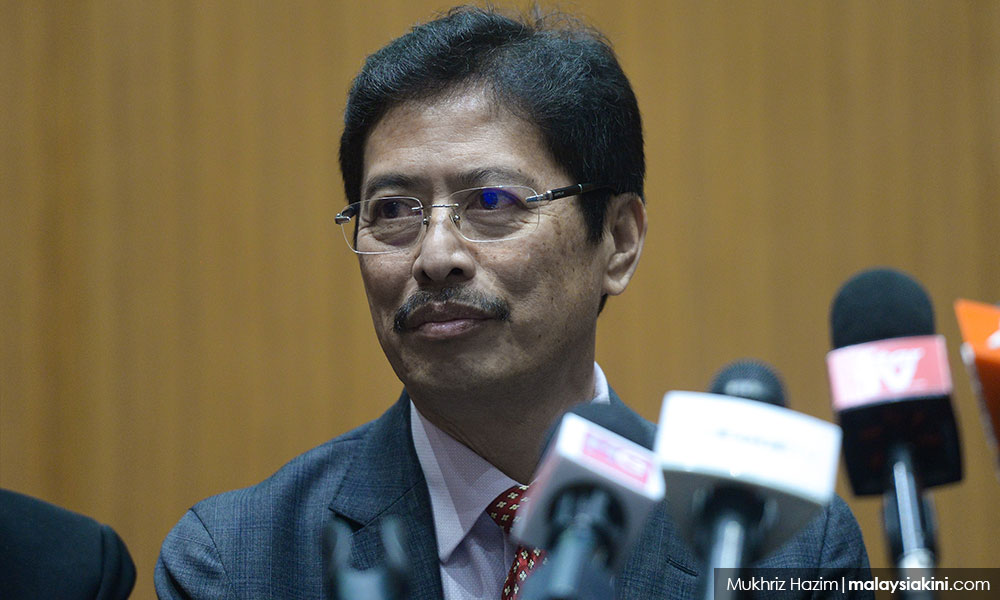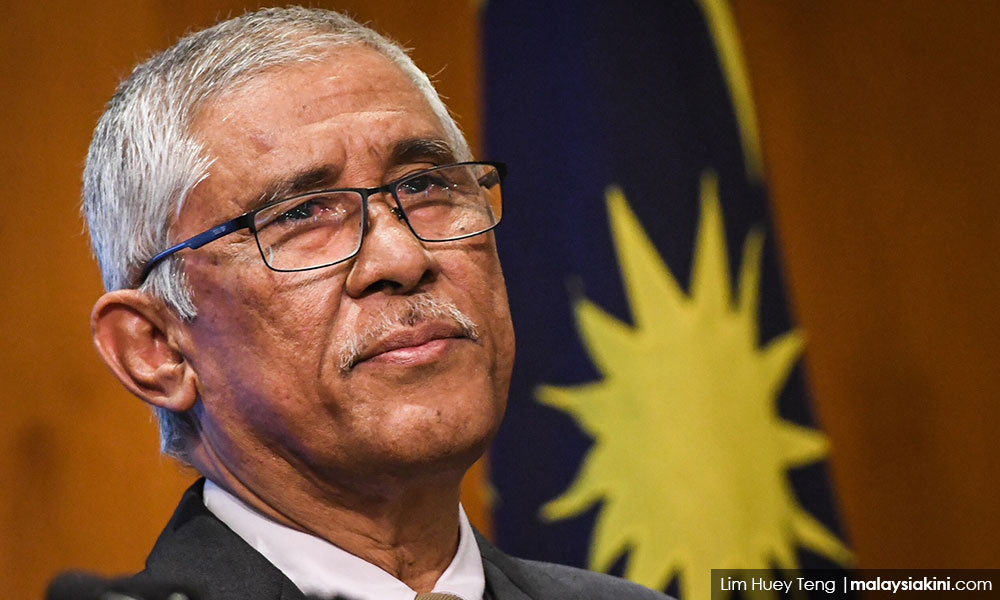
On June 2, 2014, I penned these forthright words:
“Deputy Youth and Sports Minister M Saravanan was more than generous with his words after the canvas roofing collapsed at the State Aquatic Centre in Perlis last Thursday.
“The lesson we can learn from this, which, as Malaysians, we probably never will is – be cautious when picking the contractor,” he was quoted as saying after inspecting the venue the following day.
“No one could have been in a better position than Saravanan, for he had spent five years as the deputy Federal Territory minister, where hundreds of contracts were given out. What were the criteria when it came to choosing contractors?
“Did competency, experience and knowledge take precedence over the abang-adik connection which Malaysians have become accustomed to? No, Saravanan, what goes around must come around. When basic principles in awarding tenders are not followed and when people with vested interests award contracts, you can never get the best. This is not a phenomenon. It occurs at regular intervals and as usual, someone will shout until the throat goes hoarse, by which time everyone would have forgotten about the issue.”
Now, six years later and after the change of government twice since, has anything changed? On Wednesday, Malaysian Anti-Corruption Commission (MACC) chief Azam Baki warned that there were several cases of leakage of government procurement involving government agencies and 50 percent of its investigations involved such cases.

Isn’t it evident that corruption has become endemic and has become part of our system? The number of government officials prosecuted for corruption-related cases has been rising steadily over the years as lax controls and some “untouchables” seem to be operating with impunity because of “political Godfathers” within the system.
Political leaders, for some reason or the other, appear to be getting involved in procurement and the evidence adduced at recent graft cases suggest that the climate of fear pervades the service.
The fear of being penalised for not conforming to orders from “pihak atasan” or “saya hanya menurut perintah” are phrases used to defend their actions. Very few senior civil servants are willing to stand up to political masters and say: “Sorry, Sir, this cannot be done.” They are willing to face the consequences by following rules and regulations to the letter, but this species is numbered and is fast dwindling into extinction.
The secondment of MACC officers in government departments and agencies was seen as one way of curbing malpractices. However, in most cases, they are used as window dressing. In at least one case, the MACC officer was totally kept in the dark when a tender exercise for an upgrade of the IT system running into millions for the agency was carried out.
He was later to point out the flaws that took place, but this was summarily dismissed and he was told: “We will ask for your advice if and when we need it.”
But the private sector is no angel. Again, looking at past and ongoing cases, in most instances, the givers involved companies and individuals seeking to take shortcuts or are given priority when it comes to dealings with the officialdom.
How do Malaysians reconcile the fact that the country’s chief executive officer – the prime minister – enticed MPs with offers of posts in government-linked companies (GLCs) and government agencies?
The audiotape of the offer being made has already gone viral and not a word from the man who made the offer. Some unqualified, incompetent and ineffectual characters are sitting on boards and earning big money. But if the prime minister refused to hear the voices of protests, he must have heard it from the man who is running the country’s integrity campaign.

On Sept 3, National Governance, Integrity and Anti-Corruption Centre (GIACC) director-general Abu Kassim Mohamed (above) said fighting corruption should not be the responsibility of the prime minister alone, but the cabinet members, government sector, private sector and all segments of the society should also pull their weight together.
Bernama quoted Abu Kassim as saying that “he had told the prime minister that those appointed to government-linked companies (GLCs) must be professionals with integrity and also suggested that government officers be appointed to the GLCs to ensure governance was observed”.
Can we succeed in view of the horse-trading, political dealings, offers of millions to “frogs” to jump ship in Sabah and other misfeasance being carried out openly, with the purported blessings of the powers that be? Before the Sabah State Assembly was dissolved, it was reported that Warisan’s Lahad Datu representative – Dumi Pg Masdal – claimed that he had received an offer of RM5 million from one person and RM20 million from another person, including ministerial position to jump over.
Besides Dumi, all DAP elected representatives in the state of Sabah had also come forward and exposed to the media that they too were being harassed and offered money and positions to abandon Shafie Apdal’s government.
MACC’s silence on these claims is deafening indeed. Perhaps, they do not have the “mandate” to take it further. The easiest and most efficient and effective way to identify the culprits is tweaking the law and empower the commission.
The Hong Kong Independent Commission against Corruption (ICAC) has the legal power to compel those with “tremendous wealth” that does not match the income of their position to declare their assets. Section 10 of the Prevention of Bribery Ordinance in Hong Kong states:
1) Any person who, being or having been the chief executive or a prescribed officer:
(a) maintains a standard of living above that which is commensurate with his present or past official emoluments; or
(b) is in control of pecuniary resources or property disproportionate to his present or past official emoluments;
shall, unless he gives a satisfactory explanation to the court as to how he was able to maintain such a standard of living or how such pecuniary resources or property came under his control, be guilty of an offence.
At an anti-corruption seminar last year, I suggested that we copy this section “wholesale” and amend the MACC Act. One of the participants remarked in jest: “If we have such a law, half the senior civil servants and lawmakers will be behind bars.” With the current political situation, will the government have the gall and gumption to undertake such a change?
However, when the principle of “Cash is King” has been advanced by those we trusted to lead us, what else can be said? The disciples and cronies followed suit and the culture can’t be changed. Isn’t money a great mover?
R NADESWARAN says we need tougher laws and a MACC that reports to Parliament if we want to achieve our dreams of eliminating corruption. Comments: citizen.nades22@gmail.com - Mkini
The views expressed here are those of the author/contributor and do not necessarily represent the views of MMKtT.


No comments:
Post a Comment
Note: Only a member of this blog may post a comment.